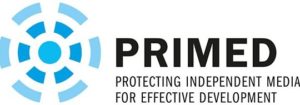Gender equality in Ethiopian society is improving in terms of political empowerment, but this still needs to pay off in terms of equal economic participation and equal access to education. Gender equality has been on the (urban) political agenda since 1935, with the formation of the Ethiopian Women Welfare Association. However, anno 2020, women in rural areas are still subject to female genital mutilation and forced marriage at a young age, deprived of education, and suffering from domestic violence. Their workload is high and undervalued, and they have no control over resources and have no part in decision making, including their personal life choices. COVID-19 is having a severe impact on female-headed households and female factory workers in the garment industry. Women’s access to media is less than men’s access. Rural women hardly use any form of media at all, although access to radio is improving. Media content is not gender-sensitive; few women are consulted as sources, and women are often depicted in a stereo-typical way. Gender in the workplace of media houses is not balanced either. Female journalists are usually young and absent in leadership positions. Media houses do not have gender policies, and sexual harassment is a seri-ous problem. Journalism education is promising in terms of gender results, so this will hopefully have a positive effect in gender equality in leadership positions in media houses. Women’s organisations in general have been weakened by the NGO law restricting foreign funding, and especially when it comes to support for female journalists.
This study was done for the PRIMED programme. The document is for internal use only. Apologies for the inconvenience.

